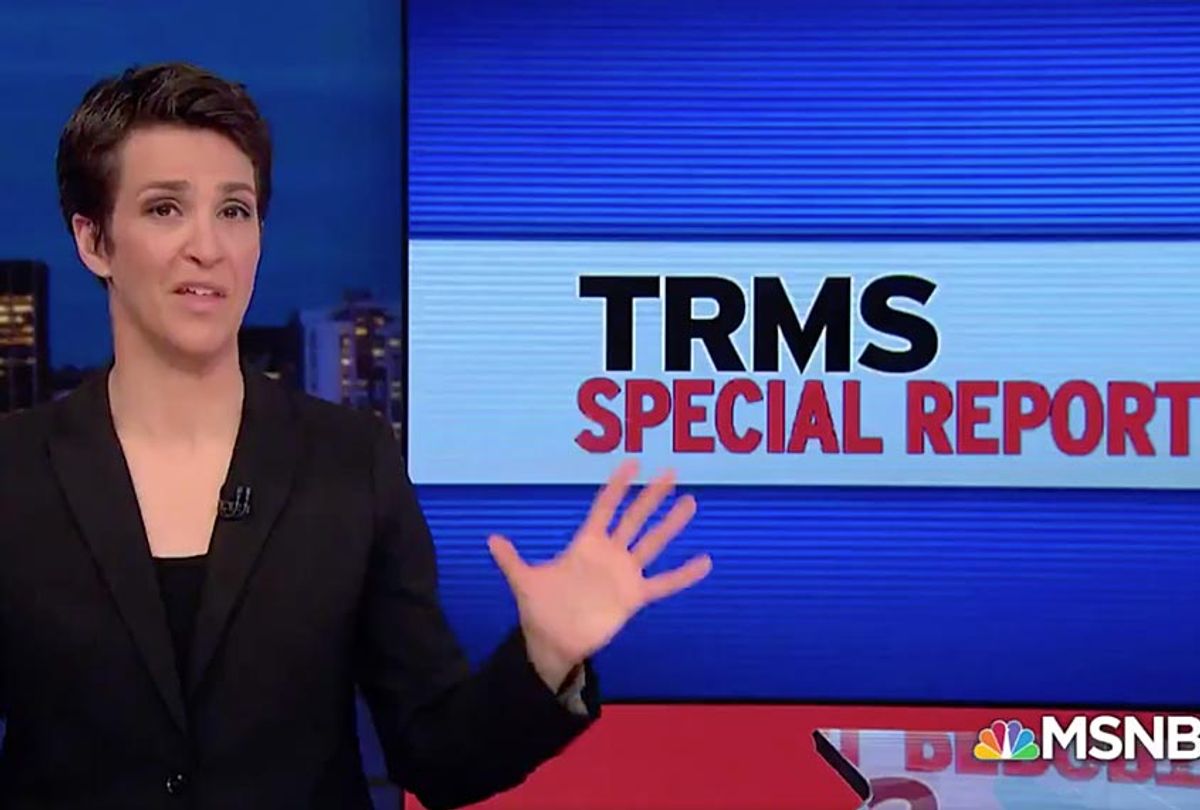In a special report Thursday Night, MSNBC’s Rachel Maddow dove deep into the Justice Department history and the origins of the policy that says sitting presidents can’t be indicted.
As part of her research for her podcast “Bag Man,” she and her team found that the department’s policy was first conceived of in response to the crimes of Vice President Spiro Agnew. Because of President Richard Nixon’s Watergate crisis, Attorney General Elliot Richardson was fearful of a situation in which Agnew might ascend to the presidency even while an investigation into his corruption ramped up. So Richardson sought an opinion from legal counsel about whether a vice president could be indicted.
Maddow reported that the conclusion of this work, that a vice president could be indicted but a president could not be, was specifically designed in mind for dealing with the Agnew situation. It rested on “shaky” grounds, citing no constitutional provisions, simply saying that the burden of the president’s office required that the commander in chief not face indictment. Maddow also interviewed J.T. Smith, who worked in the Justice Department when that reasoning was crafted who said: “Its purpose was to allow indictment and removal of Agnew and not to serve as the ‘last word’ on indictability of the president.”
He added: “It would be timely and appropriate for the Justice Department and Robert Mueller to reconsider the shaky policy regarding indictability of a sitting president first formulated 45 years ago.”
Maddow did note that the policy has since been revisited and reaffirmed, but she argued that its dubious beginnings and lack of constitutional foundations make it ripe for review. Some, however, were more skeptical.
“The OLC guidance isn’t going away, no matter what J.T. [Smith] said after the fact,” said national security lawyer Bradley Moss.
Watch the clip below:


Shares